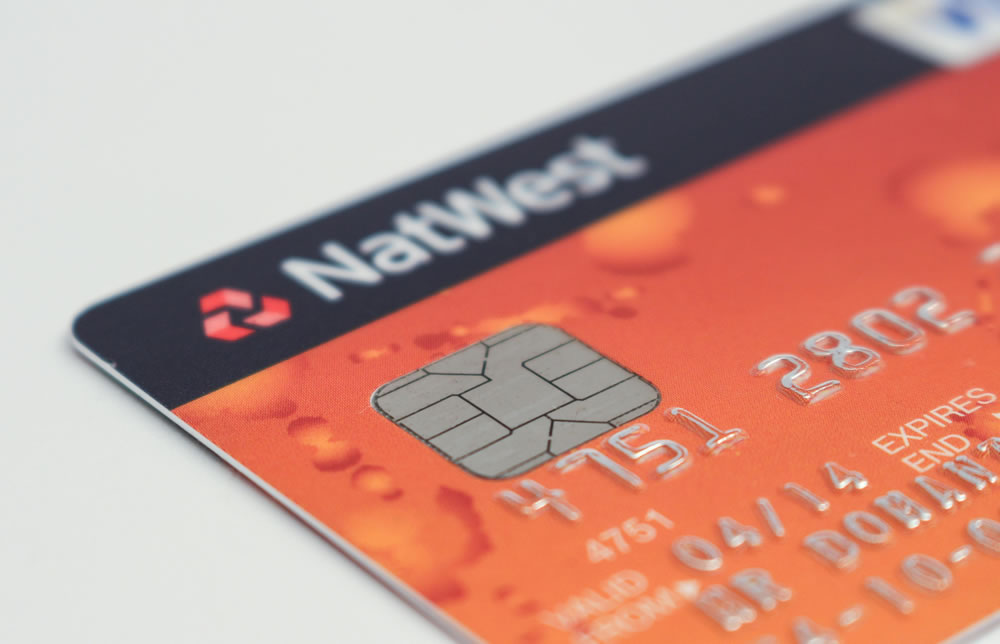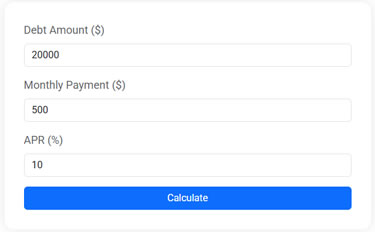How to Rebuild Your Credit Score After Paying Off Debt

Paying off debt is a significant financial milestone, but it doesn't guarantee an immediate boost to your credit score. To improve your credit standing, you should focus on understanding credit score components, maintaining active credit accounts, building a positive payment history, considering secured credit cards, diversifying your credit mix, and regularly monitoring your credit report. With patience and strategic actions, you can gradually enhance your credit profile and achieve your financial goals.
Paying off debt can feel like finally reaching the summit of a long, grueling climb. You’ve done the hard work, you've stuck to your plan, and now you're standing on the peak, looking at a debt-free future. But then comes the reality check: your credit score isn’t quite where you hoped it would be. It’s a common scenario. While paying off debt is a massive financial achievement, it doesn’t automatically translate into a stellar credit score. Yet, all is not lost. With some strategic moves, you can rebuild and even improve your credit standing.
In this guide, we'll explore practical steps to help you boost your credit score after paying off debt. Whether you're looking to buy a home, secure a loan, or simply ensure financial stability, these strategies will set you on the right path. Get ready to learn how to leverage your debt-free status to enhance your credit profile.
Understand How Credit Scores Work
Before diving into credit-building tactics, it's crucial to understand what makes up a credit score. Credit scores, like the FICO score, typically range from 300 to 850 and are calculated using five key factors: payment history, amounts owed, length of credit history, new credit, and credit mix. Payment history and amounts owed carry the most weight, making up 35% and 30% of the score, respectively.
Your payment history reflects whether you pay your bills on time, while amounts owed consider your credit utilization ratio—how much of your available credit you're using. Maintaining a low credit utilization ratio, ideally below 30%, is beneficial. As personal finance expert Suze Orman often emphasizes, understanding these components is essential for managing your score effectively. When you know what lenders look for, you can tailor your actions to improve those areas.
Maintain Active Credit Accounts
It might seem counterintuitive, but keeping your credit accounts open and active can actually aid in rebuilding your credit score. When you pay off a credit card, your first instinct might be to close the account to avoid future temptation. However, closing accounts can shorten your credit history and reduce your available credit, both of which can negatively impact your score.
Instead, consider keeping the card open and using it occasionally for small purchases. Pay off the balance in full each month to maintain a healthy payment history and keep the credit utilization ratio low. This tactic keeps your credit lines active and demonstrates responsible credit use. According to a report by Experian, consumers who maintain open accounts generally see a positive effect on their credit scores over time.
Debt Payoff Calculator
Plan your financial future by estimating how long it will take to pay off your debt based on your balance, annual percentage rate (APR), and monthly payment. After entering your figures, the calculator determines the number of months needed to fully repay the debt and calculates the total interest paid over time.
Build a Positive Payment History
After settling your debt, creating a consistent pattern of on-time payments is vital. Payment history is the most significant factor in your credit score, so ensuring you meet all your financial obligations on time can yield substantial improvements. Set up automatic payments or reminders to avoid missing due dates, which can lead to late fees and credit score damage.
If you have bills that aren’t typically reported to credit bureaus, like rent or utilities, consider using a service like Experian Boost. This tool allows you to include such payments in your credit report, potentially boosting your score. As financial advisor Jane Smith puts it, "Building a reliable payment history is like showing lenders a trust scorecard—they want to see that you can consistently manage your financial commitments."
Consider a Secured Credit Card
For those struggling to rebuild credit, a secured credit card can be a useful tool. Unlike traditional credit cards, secured cards require a cash deposit that acts as your credit limit. This reduces the risk for lenders and provides an opportunity for you to demonstrate responsible credit use.
Use the secured card for small purchases and pay off the balance in full each month. This activity will be reported to the credit bureaus, helping to rebuild your credit history. Once you establish a positive credit record with the secured card, you may qualify for a traditional credit card with better terms. Remember, the goal is to transition smoothly from secured to unsecured credit, gradually improving your credit score along the way.
Diversify Your Credit Mix
Lenders like to see that you can manage different types of credit responsibly. If you've only ever had credit card debt, consider adding variety to your credit profile. This could be in the form of a small personal loan or an installment loan, such as a car loan. These loans can positively impact your credit mix, which accounts for 10% of your credit score.
However, proceed with caution. Taking out a loan just to diversify your credit mix is not advisable if it leads to financial strain. Instead, consider your broader financial picture and choose options that align with your goals and budget. As highlighted by the Federal Reserve, a balanced approach to credit can contribute to a healthier credit score over time.
Monitor Your Credit Report Regularly
Keeping an eye on your credit report is crucial for maintaining and improving your credit score. Review your report regularly for errors or inaccuracies that could be dragging your score down. You're entitled to a free credit report from each of the three major credit bureaus—Equifax, Experian, and TransUnion—every year through AnnualCreditReport.com.
If you spot any discrepancies, dispute them promptly. Correcting errors can result in a quick score boost. Additionally, monitoring your report helps you identify areas of improvement and track the impact of your credit-building efforts. As CNBC points out, consistent monitoring is like getting a financial health check-up, ensuring everything is in order and progressing positively.
Be Patient and Persistent
Rebuilding your credit score after paying off debt is not an overnight process. It requires patience, persistence, and a commitment to financial discipline. Celebrate small victories along the way, like a slight increase in your score or another month of on-time payments. These milestones are indicators of your progress and can keep you motivated.
Remember, credit scores are dynamic and reflect your financial behavior over time. By consistently applying these strategies, you'll gradually see improvements. Stay focused on your long-term financial goals, and don’t be discouraged by temporary setbacks. As you continue to practice good credit habits, your score will improve, opening up new opportunities and financial benefits.






